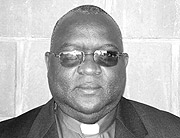The relevance of the feast of Pentecost
On Ash Wednesday, Christians begin the annual celebration of the paschal mystery which reaches its peak on the feast of Pentecost.

Sunday Meditation: Fr Casmille RUZINDAZA.
